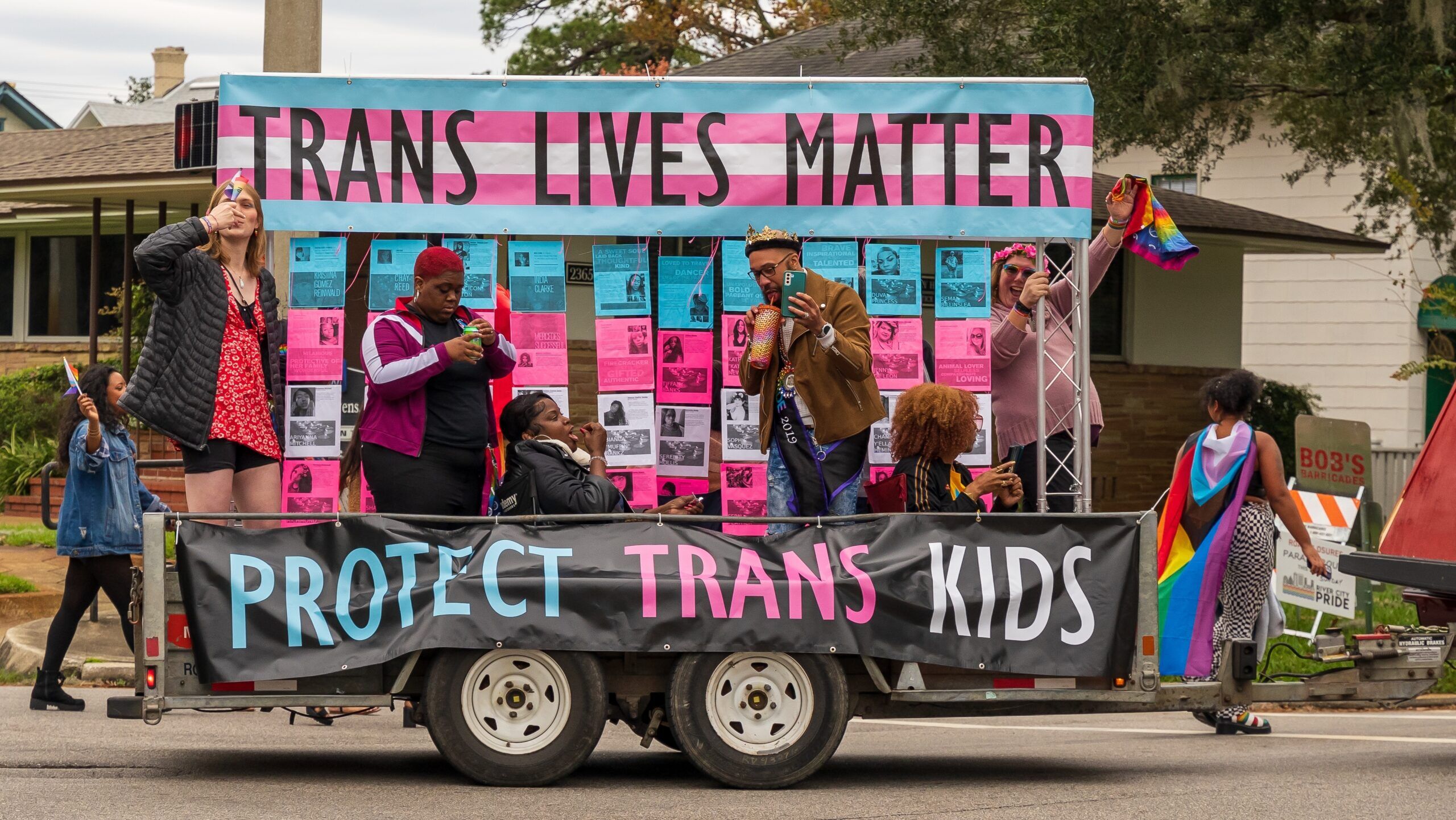With all the gloom and doom coming out of Florida at the moment, it can be easy to lose sight of the strides trans Floridians have made fighting back. A recent lawsuit challenging the state’s gender-affirming care ban for minors has already secured a promising court victory, and now it is running with that momentum to challenge the bill’s restrictions on adult care.
Florida Governor Ron DeSantis signed the gender-affirming care ban (SB 254) into law back in May. The ban was pitched as concerning minors up to age 18, but like the “Don’t Say Gay” law before it, this proved only a pretext for a more expansive ban.
SB 254 placed new restrictions on adults seeking gender-affirming care, particularly limiting telehealth treatment. Not only are in-person consent forms mandated, prescriptions can only be filled by physicians, leading some clinics staffed solely by nurses to deny care. These restrictions also make it difficult for trans patients living in rural areas to access treatment.
A lawsuit, Doe v Ladapo, was originally filed on behalf of a group of trans minors and their parents. Four adult plaintiffs have now joined them, giving testimony to the fact that the law has resulted in a denial of their care. They are pursuing a preliminary injunction on the enforcement of the restrictions for adults.
Related:
In Her Final Years, Sinéad O’Connor Donated Clothes and Makeup to the Trans Community
O’Connor helped distribute makeup and clothing to trans folks that needed it.
“I wake up every day feeling like I’m in a nightmare,” said plaintiff Kai Pope in a press release, per The Advocate. “SB 254 has canceled medically necessary treatment prescribed for me by my medical team. As a physician myself, SB 254 alarms me not only because of the devastating harm it is causing me and other transgender Floridians, but because of the disruption it is causing to our healthcare system.”
Last month, a federal district court judge granted a temporary injunction on the ban, though this applied only to the families involved in the lawsuit. “Gender identity is real,” said Judge Robert L Hinkle at the time, pointing out that the medication in question will “affect the patients themselves, nobody else, and will cause the defendants no harm.”
GLBTQ Legal Advocates & Defenders, one of the groups representing the plaintiffs, issued a statement expressing confidence that their suit will prevail while mincing no words on the dangerous implications of the law.
“SB 254’s restrictions on well-established medical care cause profound harm, serve no legitimate purpose, and reflect gross legislative overreach,” they said. “SB 254 takes away Floridians’ ability to make important decisions about their own lives and hands it over to the government instead. That should alarm us all.”
Don't forget to share:
Help make sure LGBTQ+ stories are being told...
We can't rely on mainstream media to tell our stories. That's why we don't lock our articles behind a paywall. Will you support our mission with a contribution today?
Cancel anytime · Proudly LGBTQ+ owned and operated
Read More in Impact
The Latest on INTO
Subscribe to get a twice-weekly dose of queer news, updates, and insights from the INTO team.
in Your Inbox














